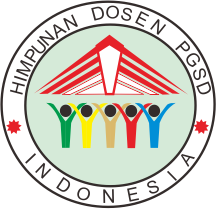The Implementation of HOTS-based ESCOTING (Relay Writing and Collaborative Writing) Model in Writing Fable at a Primary School
DOI:
https://doi.org/10.30595/dinamika.v13i1.8974Keywords:
ESCOTING, HOTS, Writing SkillAbstract
Language skills are the most important part of language learning at primary schools that need to be taken seriously. If not, then this results in low writing skills of students in expressing ideas in writing. So, students' thinking skills or what so-called Higher Order Thinking Skills (HOTS) are essential to be developed by teachers through learning. This study aims to determine the implementation of the HOTS-based ESCOTING model in writing skills of fables at primary school level. The method used was a pre-experimental research design with a single treatment design (one-shot case study). The sample used in this study was 23 second-grade students of a primary school in Bandung. The results showed that there was a significant increase in student learning outcomes in writing skills. From these results it can be concluded that the implementation of the HOTS-based ESCOTING model can be used as a solution by the teacher to develop students' writing skills, especially in writing fables for the second-grade students.
References
[1] Arikunto, S. (2002). Metodologi Penelitian Suatu Pendekatan Proposal. Jakarta: PT. Rineka Cipta.
[2] Arikunto, S. (2005). Manajemen Penelitian. Jakarta: RinekaCipta.
[3] Arikunto, S. (2006). Metode Penelitian Kualitatif. Jakarta: Bumi Aksara
[4] Cahyono, Duto Sri. 2011. Penghobi burung semakin banyak, trafik OmKicau terus menanjak. Accessed from: http://omkicau.com/2011/02/23/penghobi-burung-semakin-banyaktrafik-omkicau-terus-menanjak/. On 27 Juli 2013.
[5] Knapp, P dan Megan Watkins. (2005). Genre Text, Grammar: Technologies for Teaching and Assessing Writing. Australia: University of New South Wales Press Ltd.
[6] Suherdi, D. (2016) Pendidikan Bahasa bagi Keunggulan Bangsa. Bandung: UPI Press.
[7] Syathariah, S. (2011). Estafet Writing (menulis berantai). Yogyakarta: Grafina Mediacipta
[8] Tarigan, D. (1995). Metodik Khusus Pengajaran Bahasa Indonesia di SD. Angkasa: Bandung
[9] Tarigan, D. (1996). Membina Keterampilan Menulis Paragraf dan Pengembangannya. Bandung: Angkasa.
[10] Tarigan, H. (1986). Menulis sebagai Suatu Keterampilan Berbahasa. Bandung: Angkasa.
[11] Tarigan, H. (1992). Pengajaran Analisis Kontrastif Bahasa. Bandung: Angkasa.
[12] Tarigan, H. (2008). Membaca sebagai Suatu Keterampilan Berbahasa. Bandung: Angkasa.
Published
How to Cite
Issue
Section
License
Authors who publish with this journal agree to the following terms:
Authors retain copyright and grant the journal right of first publication with the work simultaneously licensed under a Creative Commons Attribution License that allows others to share the work with an acknowledgement of the work's authorship and initial publication in this journal.
Authors are able to enter into separate, additional contractual arrangements for the non-exclusive distribution of the journal's published version of the work (e.g., post it to an institutional repository or publish it in a book), with an acknowledgement of its initial publication in this journal.
Authors are permitted and encouraged to post their work online (e.g., in institutional repositories or on their website) prior to and during the submission process, as it can lead to productive exchanges, as well as earlier and greater citation of published work (See The Effect of Open Access).

Dinamika Jurnal Ilmiah Pendidikan Dasar is licensed under a Creative Commons Attribution 4.0 International License.














